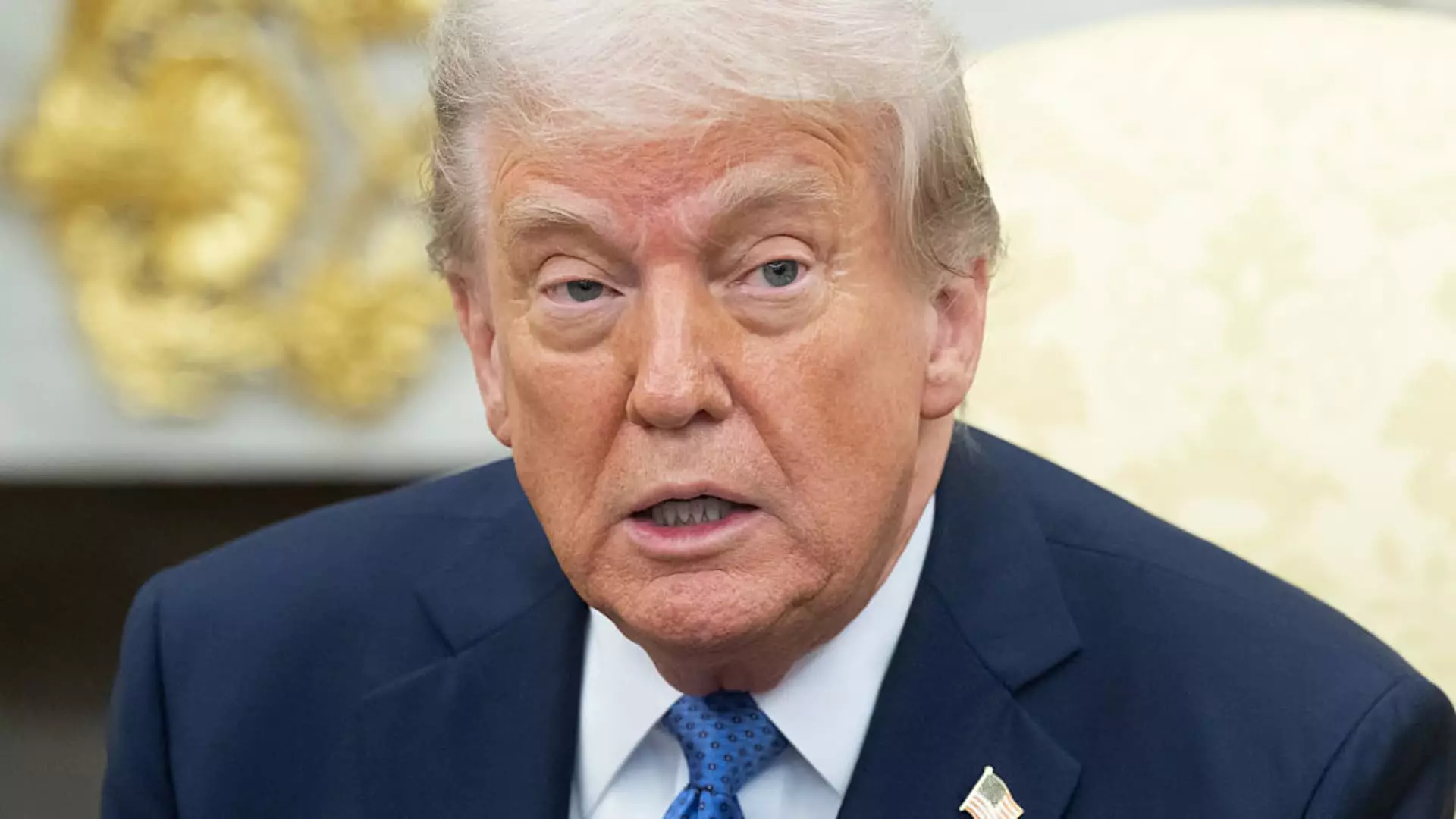In recent weeks, the Trump administration has displayed a confusing and precarious approach to the legal status of international students. This revealed a troubling trend in which the lives of thousands of young scholars hung in the balance due to abrupt record terminations. What was once a beacon of hope for these students turned into a labyrinth of bureaucracy and fear as the legal ground beneath them shifted following the whims of an administration seemingly hell-bent on meting out punitive measures against dissenters and those with troubling pasts.
While the Justice Department recently announced a temporary restoration of the legal status for affected students, the implementation of this sudden policy shift lacks clarity and compassion. Elizabeth D. Kurlan, an attorney for the government, indicated that it would take time to develop an overarching framework for handling status record terminations. This sentiment raises questions about the reliability and integrity of governmental systems responsible for protecting the rights of international students. It is alarming that individuals’ futures can be so capriciously altered by administrative decisions lacking in transparency and longitudinal vision.
Tremors of Unease: The Lingering Impact
Though some students experienced a glimmer of hope when their records were reactivated, the trail of destruction caused by the record terminations remains indelibly etched in their lives. With prior terminations still present on their records, these students face the unsettling reality that their dreams of obtaining green cards and establishing lives in the United States could be dashed before they even begin. Legal expert Elora Mukherjee aptly highlights that restoring service records is merely a gestural move; a substantive solution necessitates the complete eradication of prior consequences that students have endured during this period of uncertainty.
As Jath Shao, an immigration attorney, pointedly remarked, this tumultuous turn of events feels akin to “somebody flipping a light switch on.” What kind of system allows for such arbitrary recreation of circumstances? The disturbing implication is that these systemic tremors can leave students in a permanent state of limbo, where their futures hinge on the mercy of an ever-changing administration. The opposing narratives within the administration can create dangerous precedents that extend beyond individual cases to haunt the broader community of international scholars who contribute immensely to the fabric of academic and cultural life in the United States.
Scapegoats and Injustices: The Political Landscape
This haphazard approach to international student immigration policies underscores the politicization of their plight. In targeting students based on past allegations—including minor infractions, political activism, or even accusations lacking substantive evidence—the administration appears to use these young individuals as scapegoats in broader political jousts. This is symptomatic of a regressive ideology that breeds an environment of fear rather than inclusion, hampering the vital exchange of ideas that has long distinguished American educational institutions from others around the globe.
The stance taken by Immigration and Customs Enforcement (ICE) accentuates this harsh reality. Granting ICE the authority to terminate a SEVIS record based on vague terms leaves room for misinterpretation and abuse—an open-door policy for discrimination. In an era when academic institutions advocate for equality and diversity, such governmental posturing must be met with forceful resistance. Educational environments must be sanctuaries of support; they should not shatter students’ aspirations due to political vendettas or misguided views on immigration.
The Call for Reform: A Progressive Vision
In light of these unfolding events, the demand for systemic reform is more urgent than ever. The careless manipulation of immigration status must be scrutinized and addressed by lawmakers intent on crafting humane policies. While the recent reinstatement of legal statuses for affected students offers a short-term reprieve, it is imperative to activate policies that guarantee the long-term well-being of international students, creating a robust framework that safeguards against similar injustices in the future.
To truly honor our core principles of equity and opportunity, it is essential to rethink and redesign the immigration policies that govern the lives of international students. Ensuring that these young scholars are welcomed with open arms—not treated as pawns in political games—is a reflection of our values and a rebuke to the intolerance that has encroached upon our society in recent years. The future of countless intelligent, motivated individuals depends on the courage to envision, advocate, and foster a more inclusive landscape, where every student can thrive free from the fetters of suspicion and discriminatory practices.

Leave a Reply